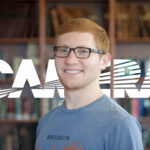
On February 27, the Anti-Defamation League (ADL) revealed that there were 1,986 antisemitic incidents reported across the United States in 2017 — representing a 57% increase from 2016. This is the most significant single-year increase on record.
Furthermore, this statistic should concern any American citizen that values diversity and disdains every manifestation of bigotry. What’s even more disturbing is that NYU has recently become fertile ground for this shameless new wave of xenophobia.
Since last month, New York police have been searching for the vandal who carved a swastika into a wall at NYU’s Lipton Hall in late February. This incident marks the third time that the Nazi symbol of hate has been used to intimidate Jews and other marginalized groups on the campus in less than two months.
More recently, the Governance Council of Minority & Marginalized Students at NYU (GCOMMS), who stated goal “is to work on questions of Diversity, Inclusion, and Equity for identity groups historically oppressed by society,” released a memorandum equating the previous incident with ‘Zionism.’
Referring to the incident in Weinstein Passport Dining Hall (Downstein) –where students rightfully pointed out the watermelon-flavored water and collard greens the school was serving during Black History Month were racially insensitive — the GCOMMS memorandum read: “our NYU community has gone through hell and back. From Swastikas to kool-aid, to Zionism…”.
How can the leaders of a body that represents the interests of disenfranchised communities on campus compare the Jewish national liberation movement formulated in opposition to antisemitism, to the fascist perpetrators of the Holocaust?
GCOMMS’ leadership must answer this question.
Regardless of one’s feelings about Israeli policy, this juxtaposition is appalling. It not only highlights the leadership of GCOMMS’ blatant disregard of the principles of intersectionality by exacerbating the rift between marginalized students. Instead, this conflation of the Jewish people’s inalienable right to self-determination in their ancestral homeland with the emblem of the genocidal slaughter of six million Jews is indicative of the general exclusion that Jewish students and clubs have experienced on campus.
In the past, Realize Israel, the pro-Israel student group on campus, tried to join GCOMMS as a Jewish organization. However, they were rejected — because they refused to condemn Israeli policies in the West Bank and Gaza, a standard no other organization had to obey. These exclusionary policies have undercut GCOMMS’ earnest attempt to build a more inclusive and equitable NYU community.
Sadly, exclusion and antisemitism are becoming more common in social justice movements everywhere. The leaders of Women’s March, the 2017 mass demonstration in protest of president Donald Trump’s inauguration, are now caught in a firestorm after a few of their organizers to refused to denounce one of the nation’s foremost antisemites — Louis Farrakhan — who frequently calls for the death of the “Satanic Jews.”
More recently, DC councilman Trayon White — a prominent community activist who founded Helping Inner City Kids Succeed (HICKS) — has propagated the theory that the Rothschilds, a European Jewish banking family, control the weather, World Bank, and the federal government.
This disturbing trend of activists embracing well-known bigots and espousing antisemitic theories must be brought to an end if any social justice movement seeks to maintain legitimacy when confronting threats from hateful extremist groups.
Now, the NYU Student Government Assembly is considering a resolution proposed by the president of Jewish Voice for Peace at NYU — and the GCOMMS Director of Advocacy — titled, “Limitations of Global Mobility using Tel Aviv as Case Study.”
This resolution decries Tel Aviv as the only NYU campus located in a country with restrictive entry laws, despite the fact the NYU Abu Dhabi is located in the UAE, a country with some of the most discriminatory immigration laws anywhere. And if this resolution passes, it will only serve to isolate Jewish students further.
The resolution also condones the boycott, divestment and sanctions (BDS) movement against Israel; BDS’ founder, Omar Barghouti, has called for “armed resistance” against Jews, and stated that “Jews are not a people.” It also decries the fact that “the State of Israel released a list of twenty organizations whose members are denied entry into the county because of their endorsement of the Palestinian call for BDS.” However, contrary to the language of this resolution, the ban doesn’t affect all members.
According to the Israeli Strategic Affairs Ministry, the ban will be limited to people who hold senior positions or who are very active within the organizations. It is unfair and unjust to single out Israel for rapprochement, considering that almost all NYU students, regardless of their activist affiliations, can attend the Tel Aviv program.
Furthermore, the United States has very similar laws on the books: Section 212(a) of the Immigration and Nationality Act says that an alien “whose entry or proposed activities in the United States the Secretary of State has reasonable ground to believe would have potentially serious adverse foreign policy consequences for the United States is inadmissible.”
That’s much broader than the Israeli ban’s language. So by the resolution’s logic, the NYU main campus on Washington Square Park should be condemned for existing where it does.
Student activists across the political spectrum are gearing up to fight the passage of this incendiary resolution in the NYU Student Government Assembly — along with all other forms of prejudice and exclusion. These efforts have reinvigorated a community that refuses to be complacent any longer in the face of hypocrisy and injustice.
Bobby Miller is a CAMERA Fellow at New York University.

